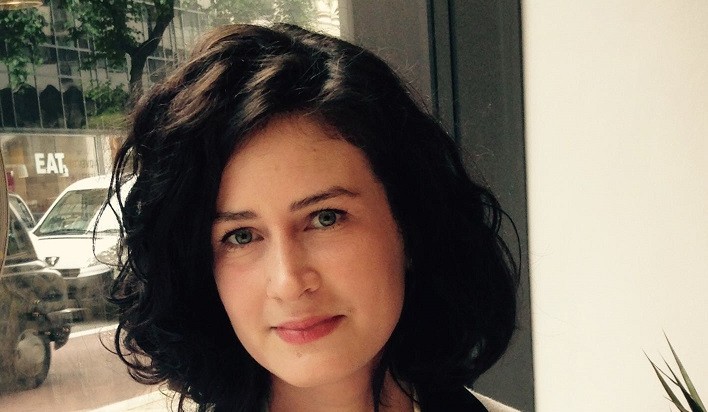Emily Critchley graduated from her creative writing course in 2016 and secured her agency representation in her final year. She has gone on to be nominated for the Carnegie medal award for her first novel Notes on my Family, and is scheduled to publish her second novel in the summer of 2021. Being a mature student Emily tells us why she chose London Met as her place of study and gives some valuable advice to budding writers.
Hi Emily, can you introduce yourself and tell us a bit about your career journey?
I graduated from London Met with a Creative Writing BA (Hons) (now called Creative Writing and English Literature). In my final year I was offered agency representation for my first novel Notes on my Family, which was initially published as a book for young adults. The novel was nominated for the Carnegie Medal, a prestigious award in children’s publishing, and featured as The Sunday Times children’s book of the week. My second novel, which is for adults, is due to be published summer 2021 and I have just signed a contract for a book I’ve written for younger children (9-12s).
Did you always want to be a writer?
Yes! I’ve always loved literature and writing and always wanted to be an author. As a child and teenager, I filled notepads with stories and plays. I decided, in my mid-twenties, that I wanted to take my writing seriously, to complete a novel. Studying at London Met helped make that dream a reality. My tutors and peers provided a supportive and inspiring environment in which to learn my craft and study the work of others.
What made you come to London Met to do your course?
I wanted to be in London but also to study in a dynamic and diverse environment. When I looked at the tutors for the course and their areas of expertise, along with the course syllabus, I knew London Met was right for me.
I started my degree when I was in my late twenties which made me a mature student. Because of this, there were some universities who were unable to offer me a place. London Met allowed me to submit a portfolio of work and accepted me based partly on that portfolio. I still feel extremely grateful that I was offered the opportunity. I was determined to do the best I could and I graduated with a first-class degree.
What did you enjoy about studying at London Met?
I enjoyed experiencing firsthand the passion of my tutors, along with reading and interpreting a wide range of texts which informed my writing. I also enjoying learning to read as a writer and how to edit and critique my own work and the work of my peers. The central location of the University and the city itself was hugely inspiring and motivating to me. In my final year, I was fortunate enough to visit the Harper Collins offices in The News Building where students were addressed by a panel of industry experts including an editor, assistant editor, author and intern. The day was so inspiring. I’ll never forget it.
How has your course at London Met helped you become an author?
Studying creative writing at London Met helped prepare me for the world of publishing. I now knew how to contact agents, how to work with an editor and what would be involved when it came to marketing my novel. As an author, I have given talks at literature festivals, to schools and on radio. Studying such a broad range of classic and contemporary texts at London Met enabled me to understand where my own writing fitted in, analyse my working methods, and to talk about my writing in context of the wider world and the literary canon.
Do you have any advice for graduates starting out in writing?
Write a lot. Read a lot. Remember that all writing is re-writing so edit, edit, edit. There are no short cuts.
What is it about your work that you enjoy the most?
I love seeing a novel grow, watching it begin to take shape, creating something from the tiniest seed of an idea – an opening sentence, an image or a feeling. A novelist’s research can take them to a different time and place, a different profession, a new or imagined world. It can allow them to give a voice to someone who may not have had one. Fiction can entertain and inform. It can hold a mirror up to society, envision a future, create empathy, wonder. Fiction can challenge us. It can present an emotional truth in a way that makes us sit up and take notice of others’ experiences or help us to process our own. I enjoy crafting sentences, telling a good story, making a connection with a reader. I can’t think of anything else I’d rather be doing.

Explore some of London Met's writing courses:
Creative Writing and English Literature BA (Hons)
Creative Writing and English Literature (including foundation year) BA (Hons)
